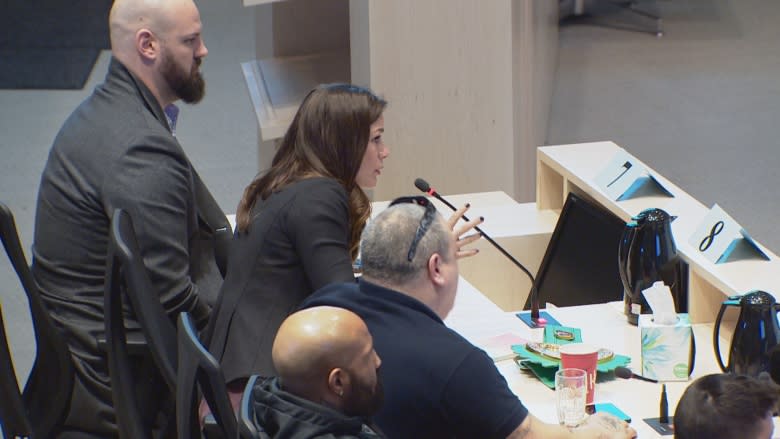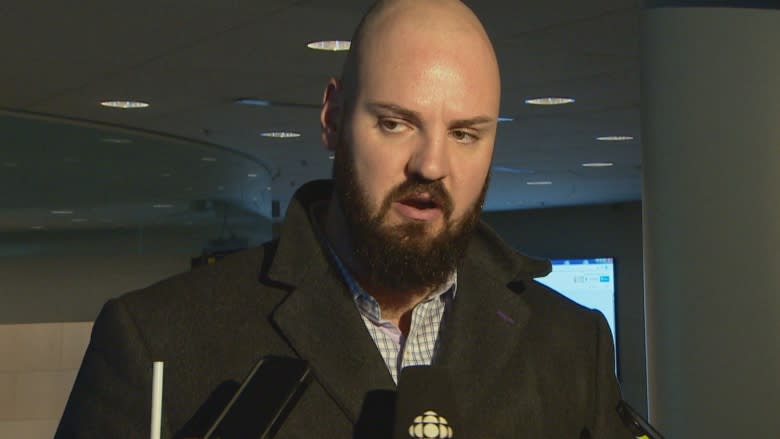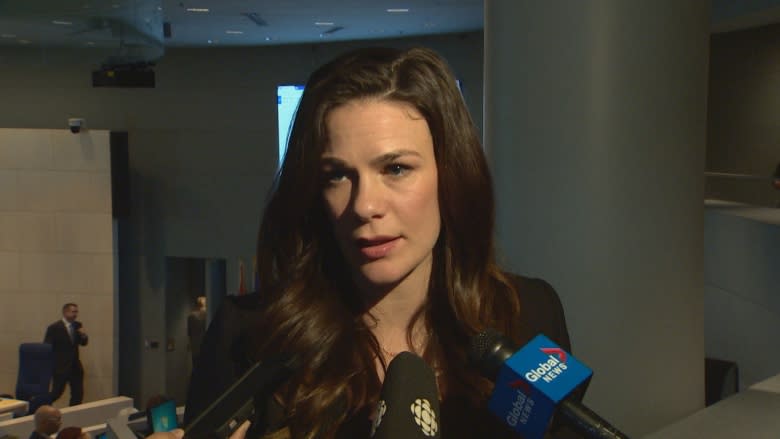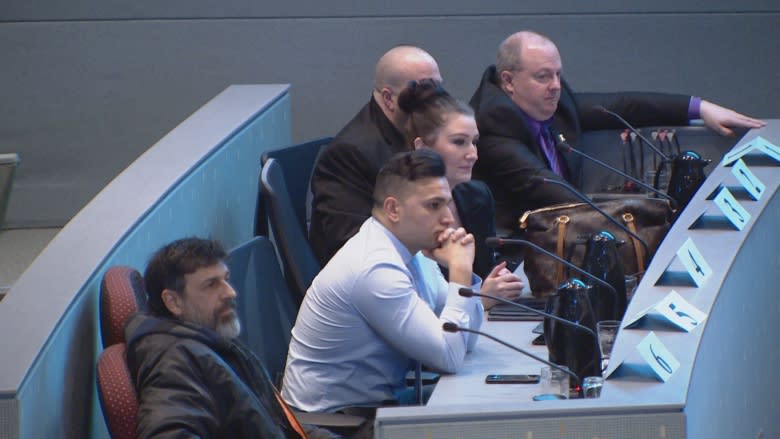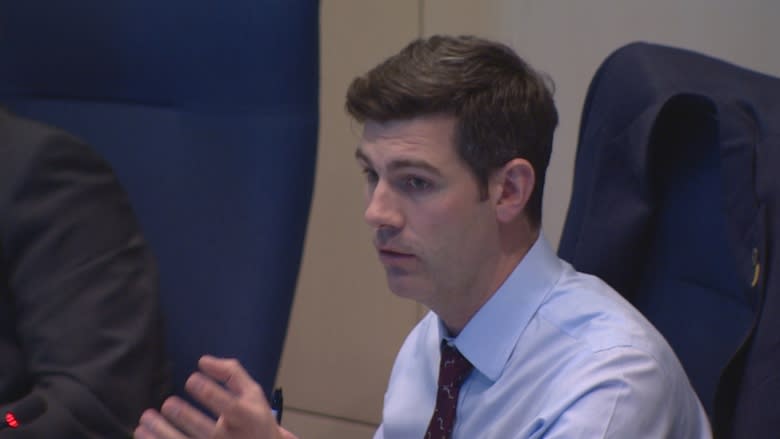Athletes, promoters ask council to lift ban on combative sports
Athletes, promoters and fans sent a strong message to a city committee Wednesday as the public was invited for the first time to share their thoughts on Edmonton's combative sports ban.
Nearly 20 people from the wrestling, boxing and mixed martial arts industries pleaded for councillors to lift a moratorium they imposed on combative sports events Dec. 8.
Brad Switzer became a professional boxer two years ago at the age of 30 and told councillors he doesn't have much time left in the ring.
"By you guys doing this, I feel like you have cut my legs off," he said.
Switzer told the community and public services committee he'd do whatever it takes to get the ban overturned.
Edmonton fighter Jelena Mrdjenovich, an eight-time world boxing champion, said she has until July to defend her world title, which has to be done once a year.
"I'm wondering who I should give this belt to," Mrdjenovich said, holding up her title belt in front of city councillors. "Because with this moratorium, my belt will be stripped."
She called Edmonton "a city I used to be proud to call my home," adding "I'm embarrassed to be an Edmontonian for the first time in my life."
Pasqualino Santoro comes from a boxing family and mentioned several local athletes, including Mrdjenovich.
"This moratorium disgraces these great athletes, legacies of competition and insults their sacrifices they've made in the ring."
The rationale behind the ban
The city commissioned Alberta-based consultant MNP to review the circumstances leading to Tim Hague's death in June 2017.
Hague died after losing a match in Edmonton following an earlier technical knockout in another jurisdiction.
MNP made 18 recommendations outlined in a two-volume report, aimed at improving fighter safety in Edmonton.
Council voted to put a moratorium on combative sporting events for up to a year.
President of KO Boxing, Melanie Lubovac, said she's been forced to cancel four shows at the Shaw Conference Centre this year because of the ban, and that it often takes three to four months to plan an event with thousands of dollars being invested in the athletes.
She said it's not only the athletes who are hurting financially.
"It's huge. I can't go a year. This is my full-time job," Lubovac said.
"If it continues to be for a year, I'm going to have to shut down," she said.
"All of the fighters that have been around here are going to move out to different jurisdictions to continue doing what they're doing."
Wrestlers ask for exemption
Kurt Sorochan with the Pro Wrestling Alliance told councillors his wrestlers are "performers" rather than "combatants."
"We have pre-determined outcomes. We are 100 per cent entertainment."
Sean Dunster with Monster Pro Wrestling also told councillors that wrestling is non-combative.
"We've never had an injury other than maybe a black eye or rolled ankle."
Several wrestling fans came to show their support.
"These guys come to every one of our shows," Dunster said, pointing to the fans in the council chambers.
"From the bottom of my heart, please guys, as soon as you can — these guys need to go back to work."
At a meeting on Jan. 23, council will discuss exempting wrestling from the ban.
They didn't ask us
Several fighters and promoters said they were confused about why city council didn't talk to them before commissioning the report.
Mrdjenovich said Edmonton is the safest city she's fought in.
"Nobody asked me my opinion on what I thought and what I felt having fought all around the world," she said.
She questioned why the city got an accounting firm with no experience in boxing to review the situation and why the accounting firm didn't consult the professionals.
"Why wouldn't these people ask us who are directly involved and affected by the commission? To me it kind of seems backwards."
Six to eight weeks
Mayor Don Iveson apologized to those affected by the ban.
"Sorry for the disruption that we've created to the athletes and the businesses as we try to do the right thing," he told the crowd.
He acknowledged that all the speakers were impassioned that the moratorium was affecting their livelihood.
"All of you were very persuasive," he said. "We give great weight to that."
At the end of the meeting, councillors agreed to work as quickly as possible on the recommendations and to come back on Feb. 21 to discuss the progress and likelihood of lifting the ban within six to eight weeks.

